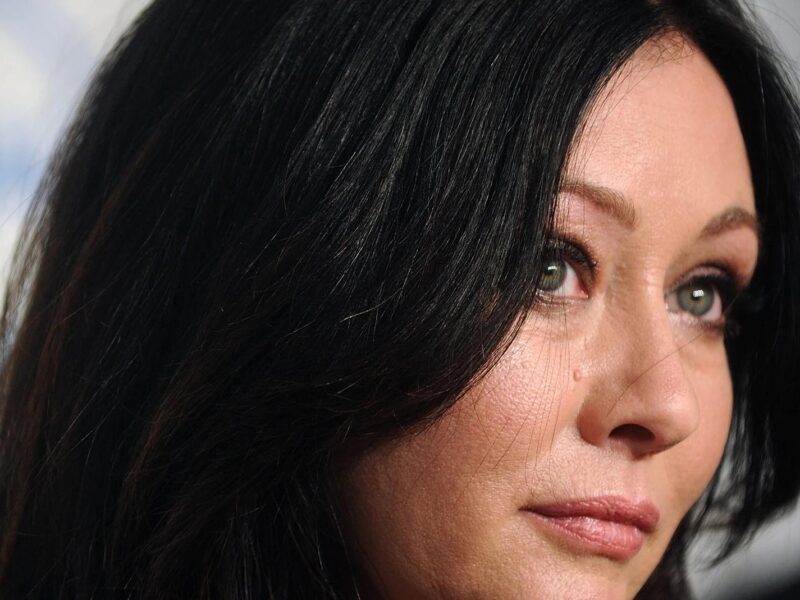
‘Grown-ish’: The teen shows putting issues front and center
If you’ve seen even just one teen TV show from the 90s in your lifetime, you’ll understand what an after school special entails. They’re usually a standalone episode based around a pertinent social “issue” affecting young people that’s barely spoken of again afterwards. It’s Kelly Taylor (Jennie Garth) almost being raped at a frat party in Beverly Hills 90210 (and conveniently forgotten about afterwards).
It’s Carlton Banks (Alfonso Ribeiro) accidentally overdosing on speed in The Fresh Prince of Bel-Air. It’s Shawn Hunter almost joining a suicide cult in Boy Meets World. They’re episodes that strive to reflect the reality of young people while also being nascently ignorant of the true problems that the average teenager is struggling through.
However, in recent years there’s been a shift in what teen TV shows can accomplish. Instead of dumping a random, standalone plotline in the middle of a season to deal with drug abuse, sexual assault, racial discrimination, or various health issues, modern young adult shows are instead exploring such narratives across entire multi-episode arcs.

They offer thorough examinations of difficult topics that are relatable to young people and accessible for them to enjoy and discuss with their peers. This progressive shift in teen TV shows started around the early 00s with the likes of The O.C., Veronica Mars, and cult British show Skins that approached teen issues with frank honesty.
Skins depicted the casual hedonism of teenagers without judgement while The O.C. dumped a bevy of misfortunes on perennial fuck up Marissa Cooper (Mischa Barton) who endured rape, domestic abuse, alcoholism, and eventually death in a manner that impacted on the extended narrative of her character and the show itself.

Likewise, Veronica Mars investigated rape culture and the impact of sexual assault across its three seasons. The teenage private eye (Kristen Bell) even spent two seasons trying to figure out her own rape, the person who perpetuated it, and the dimensions of her trauma. These shows didn’t always get it right but they built the foundations for the sort of tactile, compassionate programming being delivered for young people today.
Doug Liman’s (Swingers) new show Impulse has premiered on YouTube Red and though the sci-fi thriller hinges on the conceit of teleportation, the show actually offers a bold exploration of “consent and the lingering trauma a sexual assault can cause a victim.”
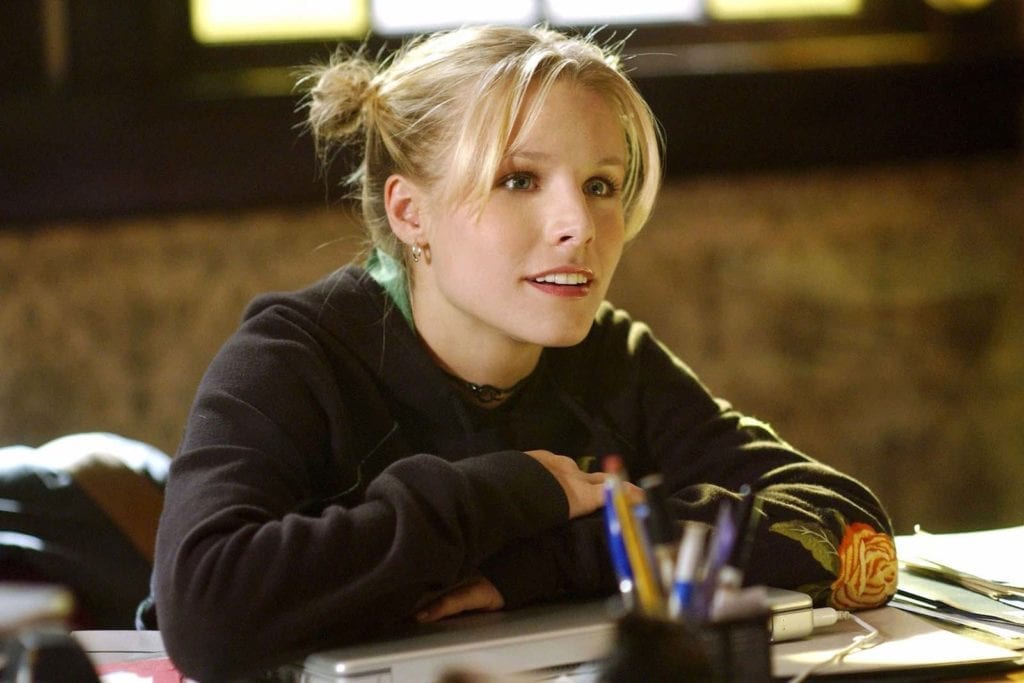
As a review from The Hollywood Reporter suggested, “It’s a multi-episode process that’s almost always in the foreground as Henry faces the constant presence of her attacker; suffers self-doubt as her story is questioned; and shies away from other intimacies in her life, already a problem for the new girl in school and for one of those sci-fi characters whose burgeoning adolescence and nascent powers are intermingled.”
By exploring such complex issues through an accessible supernatural lens, Impulse is a young adult show that makes a difficult topic – particularly for young survivors of sexual assault – easy to watch. In an article about how TV shows can improve the understanding of sexual violence, Time reported that refusing to treat such assaults as a “blip in the story arc” is pivotal in helping viewers understand the full weight of the crime.
When done well, incorporating sexual violence into a story can effectively bring the issue to the forefront of public conversation, educating viewers about the negative impact on survivors and the role we can all play in preventing sexual violence.
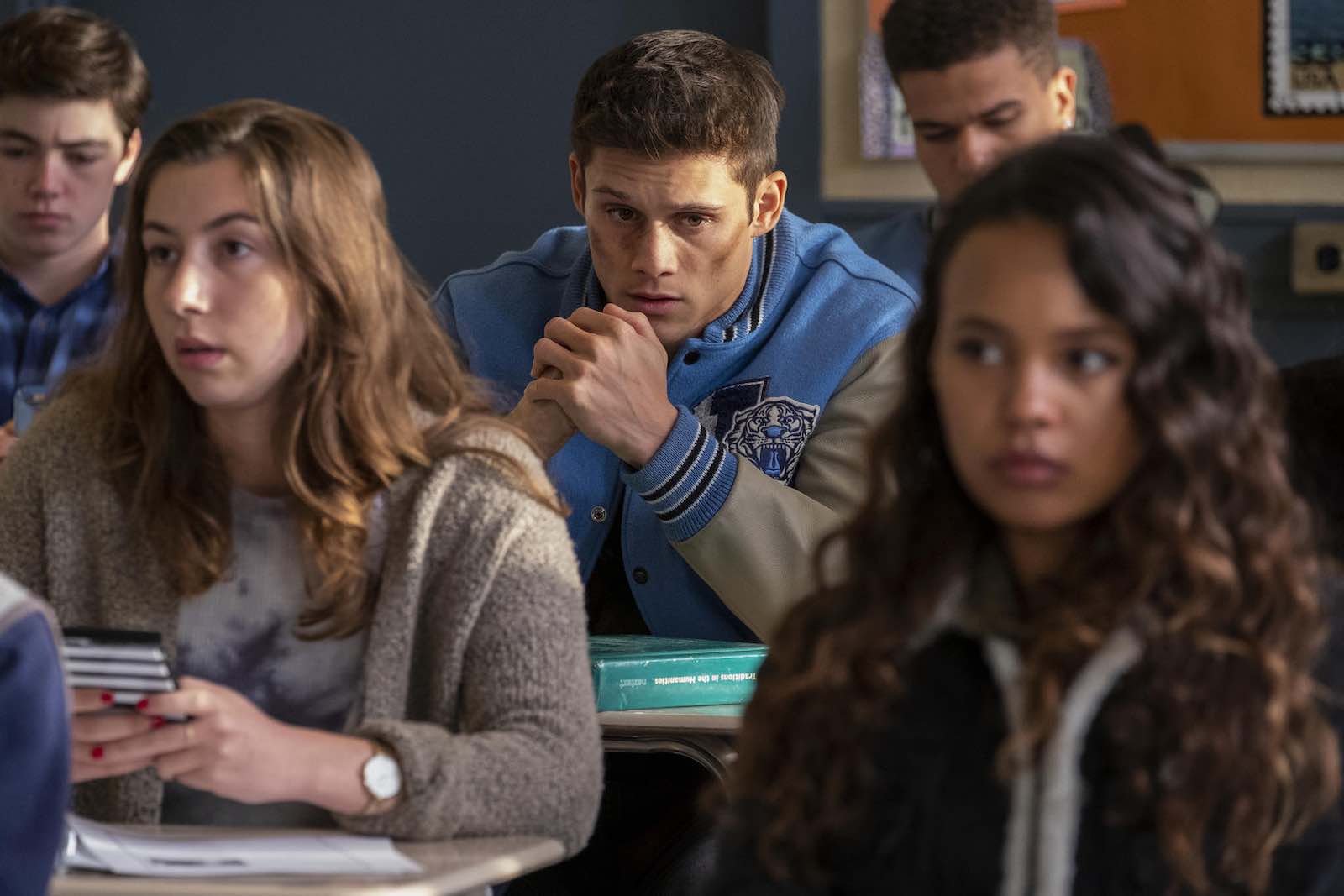
This is perhaps what makes 13 Reasons Why so insanely popular. The Netflix Originals show has faced repeated controversy over its raw and often challenging depiction of destructive teen behaviors, but what it has definitely done right is its extensive and honest depiction of sexual assault. The show explores the emotional, physical, psychological, and social ramifications of multiple attacks while also challenging popular misconceptions of what a “rape” looks like.
The Feminist Feline argued the scene in which Hannah (Katherine Langford) is raped while sober and completely conscious is a radical one for representation of the issue. “While she is assaulted, Hannah does not scream. She does not call for help. She does not try to push her attacker off of her. She goes numb.
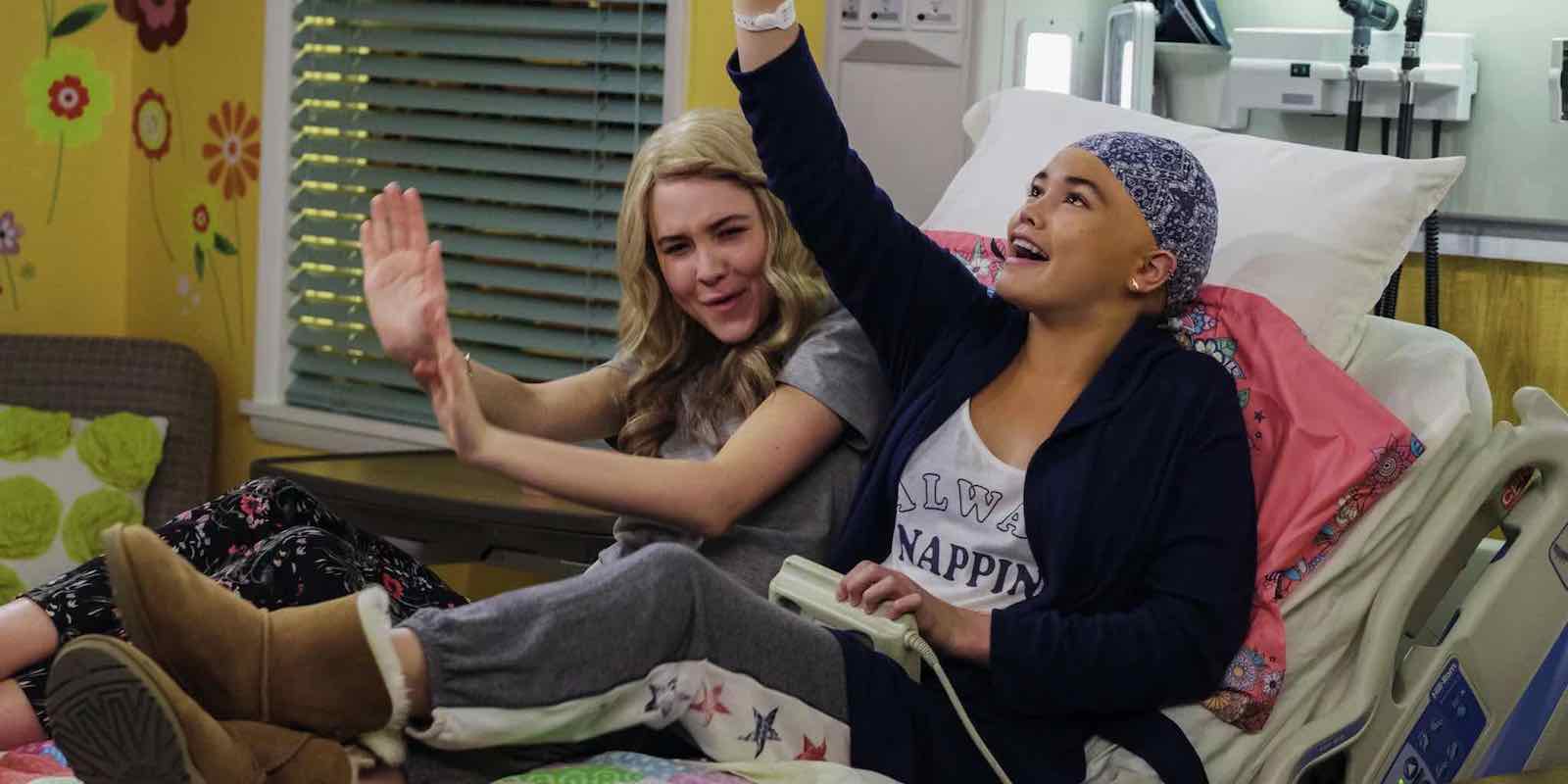
The scene shows that a victim does not have to “fight back” to justify her assault. Everyone responds differently to violence, and traumatic experiences elicit a variety of responses from victims. Hannah’s reaction is not ‘wrong’ and it is important that the show makes that clear.”
Modern teen TV shows are also making huge strides in representing young people dealing with diseases or disorders in a way that would have been unfathomable to see in the 90s or the early 00s. In the Netflix Originals comedy Alexa & Katie, Alexa (Paris Berelc) is fighting cancer but it isn’t her only definable trait.
The character is far more complex than the disease she’s battling and is never made an object of pity for it. Instead, Alexa’s life and motivations reflect those of any other average teenage girl – crushes, hobbies, and her friendship with best friend Katie (Isabel May) – albeit with an extra battle on her hands.
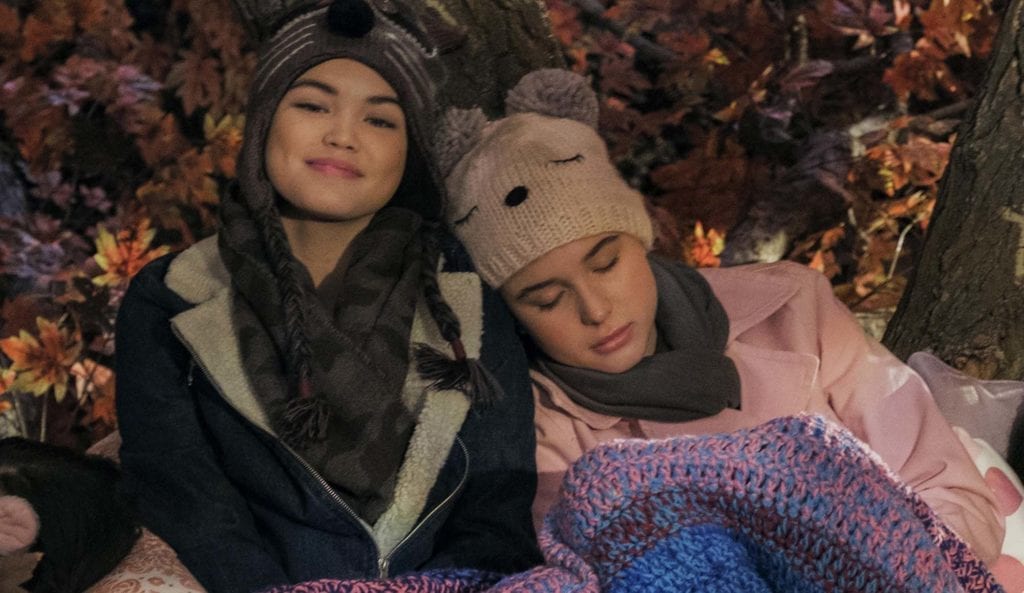
Likewise, though Atypical may revolve around an autistic teenager rather than focusing on a teenager who just happens to have autism, the show does so with levity and humor. Sam (Keir Gilchrist) isn’t reduced to some extreme stereotype like The Big Bang Theory’s Sheldon Cooper (Jim Parsons) – he’s self-aware and savvy about what he wants from life.
In the 90s, a teenage girl with cancer would have probably been reduced to one of Brandon Walsh’s (Jason Priestley) disposable dates-of-the-week who teaches him a lesson about living life to the fullest. A teenage boy with autism would have been a character on Dawson’s Creek who shows up just to help Dawson Leery (James Van Der Beek) figure out life and solve a super tricky algebra equation. Neither would have been heard from again.
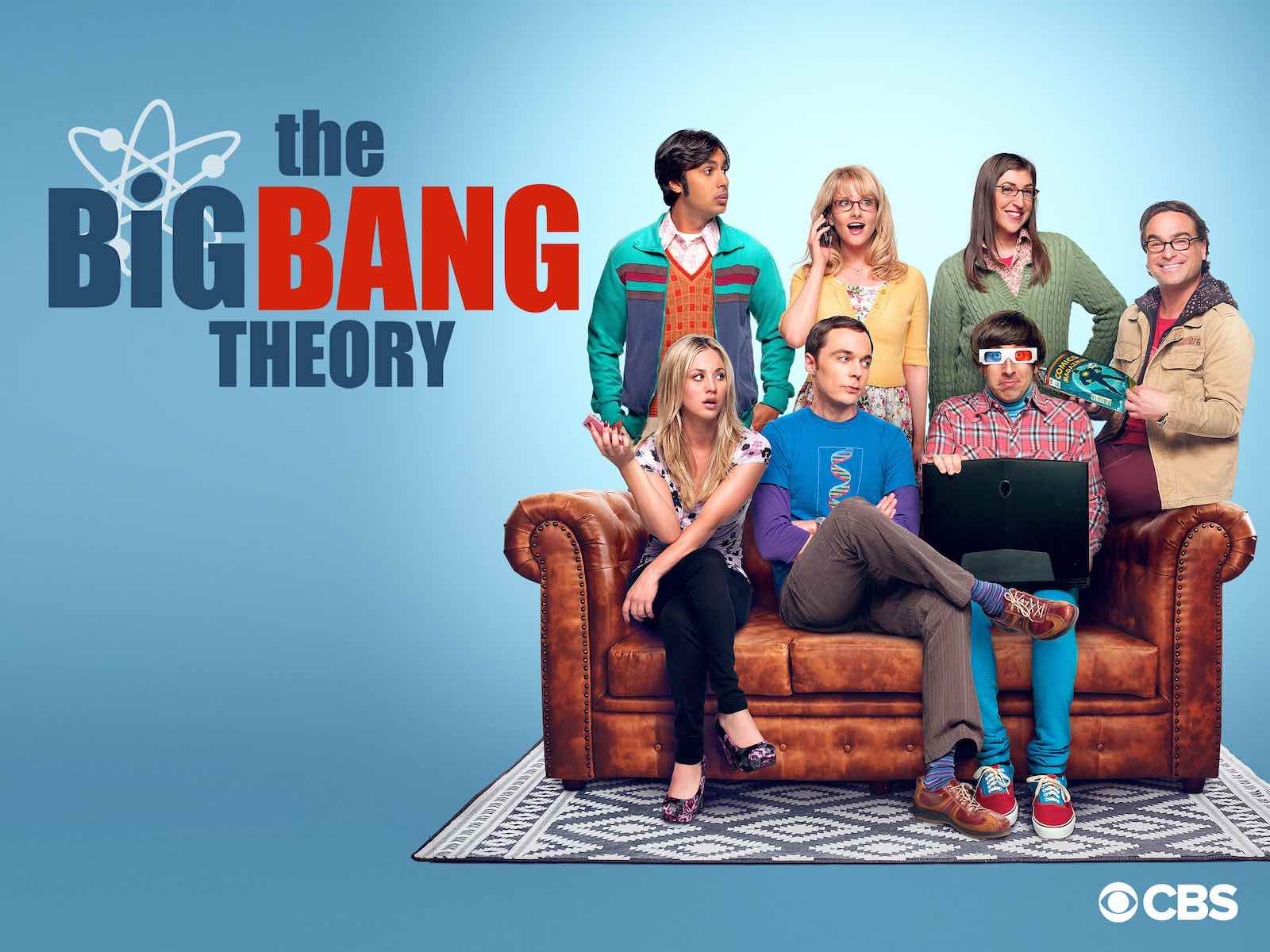
In one of the most basic but powerful proofs of how far teen TV has grown since the 90s, you need only look at the study drug plotline developed on Grown-ish. As TV Line pointed out, “Adderall is one of the most common study drugs on college campuses, and a lot students get their pills from friends who have the prescription.”
By the end of the first season, Zoey (Yara Shahidi) finds herself continuing to take the drug in excessive quantities even though she doesn’t need it – something that Vivek (Jordan Buhat) calls her out for – making the show “a pretty accurate TV version of a college campus.”
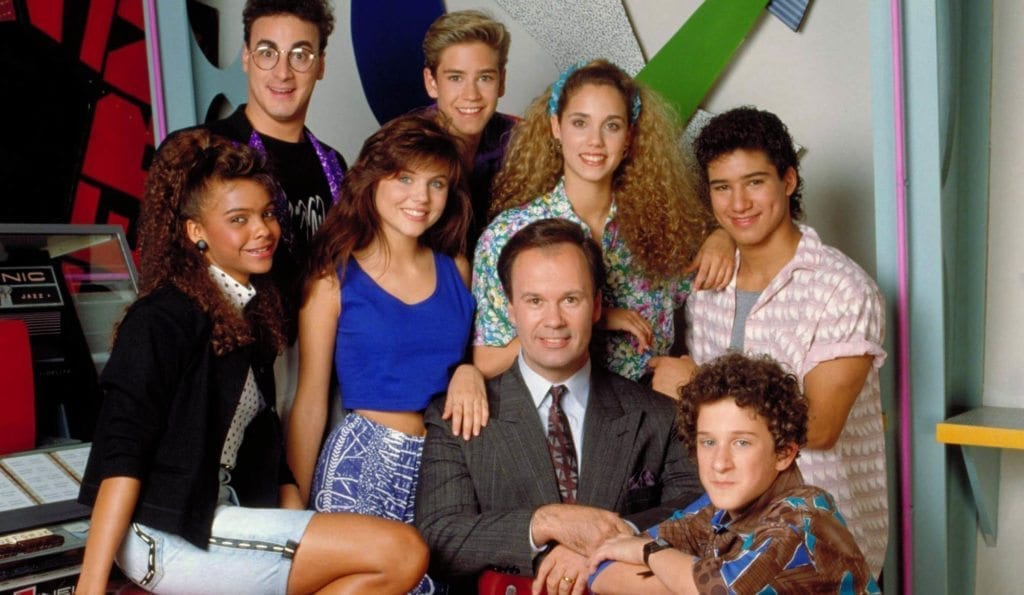
By comparison, think back to Jessie Spano’s (Elizabeth Berkley) embarrassing caffeine pill plotline in Saved By The Bell where she finishes a shrill rendition of The Pointer Sisters’ “I’m so excited” by screaming “I’m so scared!” when her apparent caffeine addiction is too much to take.
Apparently, the network at the time would only allow the narrative if Jessie was popping caffeine pills and not something a little heavier. The moment is one of the least realistic and preposterous attempts of any young adult show in history to reach out to its young audience about an important “issue”.
Thankfully, we’ve come a long way since Jessie’s pill-popping days. Teen TV is currently enjoying a peak moment and talking directly (rather than down) to its young audience about real life shit that actually matters to them. It’s been a long time coming.






